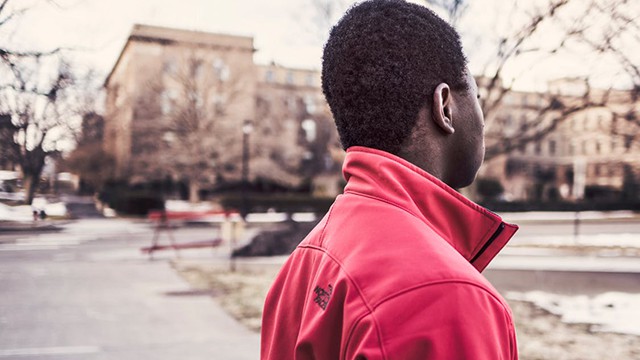Peel School Board Hears Proposals to Help Black Students
Published June 21, 2017 at 3:32 am

It’s not a surprise to learn that it is sometimes hard to be a student of colour in public schools these days. Even in 2017, when a huge number of Peel students are of non-white backgrounds, recent statistics have shown that certain groups of students struggle a bit more than their counterparts, especially black male students. And the problem is not just with their own studies and life in the education system, but how they interact with the society they belong to.
Last month, the Peel District School Board (PDSB) held the We Rise Together leadership conference at the Sheridan College Davis Campus in Brampton in conjunction with black male students and their allies. Subsequently, the PDSB announced that an action plan to formulate guidelines on how to move forward will be introduced.
The We Rise Together action plan set out goals for the 2017-2018 school year. According to their press release, over the past year, the PDSB curriculum staff have:
-
Provided professional development to teacher librarians and classroom teachers to help build a collection of texts that support black students, using a critical literacy lens.
-
Built links to race and racialization in high school English courses.
-
Worked with elementary schools to develop collaborative inquiries with a focus on social justice as it applies to the experience of black students.
The We Rise Together action plan for 2017-18 is organized into four focus areas:
Engage with the community
-
Create a We Rise Together advisory council consisting of Black Peel parents, community members and board representatives who will meet at least 4 times a year to gather related feedback and advice and provide updates.
-
Host an annual parent engagement session for Black Peel families led by black Peel educators, the date and time for which will be established with the advisory council in fall 2017.
Deliver anti-Black racism and bias awareness professional development
-
Deliver mandatory anti-Black racism and bias awareness professional development training through an external facilitator for Peel’s senior administration, Trustees, school administrators, managers and supervisors, curriculum coordinators, instructional coordinators, special education resource teachers, social workers and psychology staff. Training will commence in the fall of 2017 and continue throughout the academic year.
Integrate the experiences of Black Canadians into the curriculum
-
Develop the lesson plans and resources with Peel Black educators and community experts to embed the experiences of Black Canadians into the grade 10 mandatory history curriculum and the open course in Grade 11 or Black Studies for implementation in the 2018-2019 school year.
-
All central instructional coordinators will embed the Black experience and history into their specific curriculum areas through a comprehensive K-12 perspective. This will begin in September 2017 and continue throughout the academic year.
-
A further development of Black History Month resources and texts by curriculum staff to be shared in all Peel schools. This will also begin in September 2017 and continue throughout the year.
Inspire Black student leadership and engagement
-
Host annual We Rise Together Leadership Conference for Black male students in middle and secondary schools. The conferences will take place over the course of two days in the winter of 2018.
-
Host a symposium for Peel educators that are interested in developing Black mentorship programs with Black community leaders for Black male students, to take place in October.
The PDSB will host a community event at the school board building at Hurontario Street and Matheson Boulevard on September 23 to share this report and answer the general public’s questions.
But regarding the We Rise Together action plan, the Board should be careful not to make the discussion come off as exclusively about young black males. That may sound counter intuitive, but if this exercise is about inclusion of black students, then it should also include a discussion about how non-black students’ perceptions and interactions are in their schools. I think we’ve come a few ways away from those days of calls for ‘Africentric’ schools in the system; let’s make sure that all students feel included in each other’s lives–it lets everyone be a part of the solution.
Follow me on Twitter at @thekantastic
Editor’s Note: A previous version of this article said attendees must bring ID to the Sept. 23 event. The PDSB says that ID will not be required at that particular gathering. We regret the error.
insauga's Editorial Standards and Policies advertising





